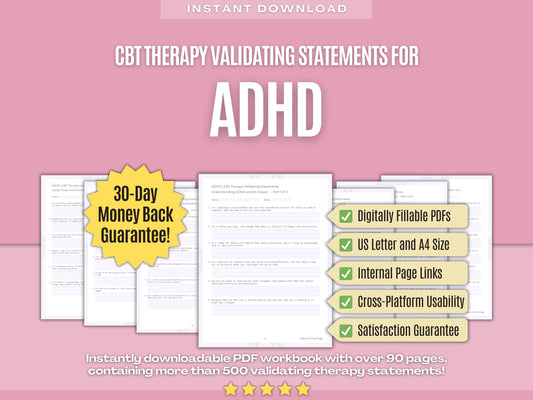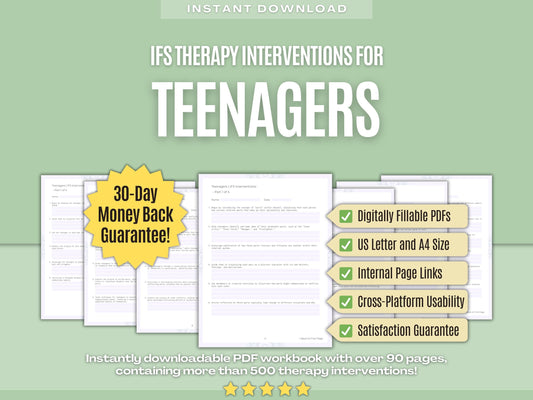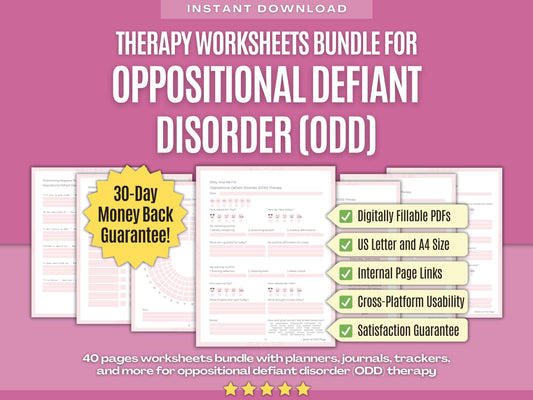Elevate Your Therapy and Guide Your Clients to Inner Healing with Our Obsessive-Compulsive Disorder (OCD) Validating Therapy Statements! ✨
1. Beginning OCD Management
- Embarking on the journey of managing your OCD is a significant step towards reclaiming control over your life.
- Recognizing that you want to take action to address your OCD shows courage and determination.
- Your commitment to managing your OCD demonstrates your strength and resilience.
- Together, we will explore effective strategies to help you manage and reduce the impact of OCD on your daily life.
- Your willingness to engage in the process of managing your OCD is essential for progress.
- Each small step you take towards managing your OCD is a significant achievement.
- Your experiences with managing OCD are unique, and we will tailor our approach to suit your individual needs.
- Your dedication to improving your quality of life despite the challenges posed by OCD is admirable.
- You have the capacity to learn and implement effective coping mechanisms to manage your OCD.
- Your efforts towards managing your OCD are commendable, and I'm proud of the progress you're making.
- You have the resilience and determination to overcome the challenges presented by OCD.
2. Understanding OCD
- Understanding OCD is the first step towards effectively managing its symptoms.
- OCD is a complex mental health condition that manifests in various ways for different individuals.
- Your willingness to explore and understand your OCD symptoms is essential for progress in therapy.
- OCD involves a combination of genetic, neurological, and environmental factors that contribute to its development.
- Compulsive behaviors or rituals are often performed in an attempt to alleviate the anxiety caused by obsessions.
- Understanding the cycle of obsessions and compulsions is crucial for breaking free from OCD patterns.
- It's common for individuals with OCD to experience feelings of shame or embarrassment about their symptoms.
- Each person's experience with OCD is unique, and we will work together to understand your specific triggers and patterns.
- These fears can drive the need for excessive checking, counting, or other rituals to alleviate anxiety.
- Avoidance behaviors may provide temporary relief, but they ultimately reinforce the power of OCD.
- You have already shown bravery and resilience by seeking to understand and address your OCD symptoms.
3. Mindfulness for OCD
- Mindfulness can be a powerful tool in managing the symptoms of OCD.
- Mindfulness encourages observing your thoughts and feelings without judgment or reaction.
- Mindfulness helps cultivate a sense of present-moment awareness, which can reduce the grip of OCD on your mind.
- Mindfulness teaches us to let go of the need to control our thoughts and instead focus on accepting them as they are.
- It's important to approach mindfulness practice with patience and openness, allowing yourself to explore what works best for you.
- As you continue to practice mindfulness, you may notice a shift in how you relate to your OCD symptoms, leading to greater freedom and peace of mind.
- Your willingness to explore mindfulness as a tool for managing OCD is commendable and reflects your commitment to your well-being.
- Mindfulness can help you cultivate a sense of curiosity and openness towards your experience, allowing for greater insight and self-awareness.
- Mindfulness encourages us to approach our experiences with kindness and compassion, including those related to OCD.
- I'm here to support you as you integrate mindfulness into your OCD management plan and explore its potential benefits.
- Mindfulness empowers you to reclaim control over your attention and focus, rather than allowing OCD to dictate your thoughts and actions.
4. Dialectical Behavior Therapy (DBT) for Emotional Regulation
- Dialectical Behavior Therapy (DBT) offers valuable tools and strategies for managing emotions, which can be particularly beneficial for individuals with OCD.
- Your decision to explore DBT for emotional regulation reflects your commitment to finding effective ways to cope with the impact of OCD on your life.
- In DBT, we will focus on developing mindfulness, distress tolerance, emotion regulation, and interpersonal effectiveness skills.
- Distress tolerance skills help you cope with overwhelming emotions without resorting to impulsive or harmful behaviors.
- It's normal to feel overwhelmed or uncertain as you begin to learn and apply DBT skills for emotional regulation.
- We will work together to identify specific emotional triggers and develop personalized strategies for managing them.
- Your experiences with OCD are unique, and we will tailor our approach to DBT to address your individual needs and goals for therapy.
- As you practice DBT skills, you may begin to notice a greater sense of control and mastery over your emotions, even in the presence of OCD symptoms.
- Your commitment to DBT for emotional regulation is a testament to your resilience and determination to improve your well-being.
- DBT encourages a compassionate and nonjudgmental stance towards yourself and your emotions, which can be transformative in coping with OCD.
- Through DBT, you will acquire lifelong skills for managing emotions that can benefit you beyond the scope of OCD therapy.
5. Interpersonal Therapy (IPT) for Relationship Challenges
- Interpersonal Therapy (IPT) offers a supportive and structured approach to addressing relationship challenges that may arise in the context of OCD.
- Your decision to engage in IPT for relationship issues reflects your commitment to finding constructive ways to manage the interpersonal aspects of OCD.
- We will work together to identify specific relationship difficulties or conflicts that have arisen as a result of OCD.
- It's normal to feel frustrated or overwhelmed when trying to navigate the complexities of relationships impacted by OCD.
- Through IPT, you will have the opportunity to gain insight into the ways in which OCD symptoms may be impacting your relationships.
- As you progress through IPT, you may begin to notice positive changes in your relationships and a greater sense of connection with others.
- I'm here to provide guidance and support as you navigate the challenges and successes of IPT for relationship issues.
- It's okay to feel vulnerable or uncertain as you work to address relationship challenges in therapy – these feelings are a natural part of the process.
- We will work together to identify and build upon the strengths within your relationships, while also addressing areas of difficulty.
- Remember that progress in IPT may take time, and it's important to be patient and persistent in working towards your relationship goals.
- I want to emphasize that you are not alone in this journey – I'm here to support you every step of the way.
6. Emotion-Focused Therapy (EFT) for Anxiety
- Emotion-Focused Therapy (EFT) offers a compassionate and empathetic approach to addressing anxiety, including anxiety related to Obsessive-Compulsive Disorder (OCD).
- Your decision to explore EFT for anxiety reflects your commitment to finding effective ways to cope with the challenges posed by OCD.
- We will focus on understanding the underlying emotions that contribute to your anxiety and how they manifest in your thoughts, behaviors, and relationships.
- I want to reassure you that in EFT, we will work at a pace that feels comfortable for you, ensuring that you feel supported and validated throughout the process.
- We will explore the ways in which anxiety may be serving a protective function, and how we can work together to address underlying emotional needs more effectively.
- Your experiences with anxiety, including those related to OCD, are unique, and we will tailor our approach to EFT to address your individual needs and goals for therapy.
- Through EFT, you will develop greater emotional resilience and self-compassion, which are essential for managing anxiety effectively.
- Your commitment to EFT for anxiety is a testament to your strength and courage in facing your emotions and seeking healing.
- EFT emphasizes the importance of cultivating a compassionate and nonjudgmental stance towards yourself and your emotions, fostering greater self-acceptance and emotional healing.
- Through EFT, you will have the opportunity to develop lifelong skills for managing anxiety and cultivating emotional well-being.
- As you continue to engage in EFT, you will deepen your emotional awareness and resilience, allowing you to face anxiety with greater ease and confidence.
7. Psychodynamic Understanding of OCD
- A psychodynamic understanding of Obsessive-Compulsive Disorder (OCD) delves into the unconscious conflicts, early experiences, and defense mechanisms that contribute to the development and maintenance of OCD symptoms.
- Your decision to explore the psychodynamic perspective on OCD reflects your curiosity and openness to understanding the deeper roots of your symptoms.
- We will work together to identify and explore the underlying emotional conflicts and unresolved issues that may be driving your OCD symptoms.
- I want to reassure you that in psychodynamic therapy, we will proceed at a pace that feels comfortable for you, ensuring that you feel safe and supported throughout the process.
- We will examine how unconscious fears, anxieties, and unresolved conflicts are expressed symbolically through OCD rituals and compulsions.
- Your experiences with OCD are unique, and we will tailor our approach to psychodynamic therapy to address your individual needs and therapeutic goals.
- Through this process, you will develop greater self-awareness and insight into the underlying psychological dynamics that drive your OCD symptoms.
- Your commitment to psychodynamic therapy for OCD is a testament to your courage and willingness to explore the depths of your psyche in search of healing.
- Psychodynamic therapy encourages a compassionate and nonjudgmental stance towards yourself and your inner experiences, fostering deep healing and transformation.
- Through this deep exploration, you will have the opportunity to gain insight into the unconscious motivations and conflicts that fuel your OCD symptoms.
- As you continue to engage in psychodynamic therapy, you will deepen your understanding of yourself and your symptoms, paving the way for lasting change and growth.
8. Soothing with Music Therapy
- Music therapy offers a gentle and comforting way to soothe the mind and alleviate the distress often associated with OCD.
- Music has the ability to evoke a wide range of emotions, providing a safe space for you to explore and express your feelings about OCD.
- Music therapy can serve as a grounding technique during moments of heightened anxiety or intrusive thoughts related to OCD.
- Engaging with music allows you to tap into your inner resources for coping with OCD, fostering a sense of empowerment and resilience.
- Your musical preferences are unique to you, and there's no right or wrong way to incorporate music into your therapeutic practice.
- Whether it's a familiar song or a newly discovered melody, the right piece of music has the power to uplift your spirits and provide a sense of hope.
- Music therapy honors the interconnectedness of mind, body, and spirit, providing a holistic approach to healing from OCD.
- Music serves as a universal language that transcends words, allowing for a deeper exploration of complex emotions related to OCD.
- Music therapy encourages you to trust your intuition and listen to the messages that resonate most deeply with you.
- Engaging with music can help shift your focus away from OCD symptoms and toward moments of joy, beauty, and inspiration.
- Your engagement with music is a form of self-care and self-compassion, allowing you to nurture your emotional well-being in meaningful ways.
9. Concluding OCD Therapy
- As you conclude your OCD therapy journey, it's important to acknowledge and celebrate the progress you've made, no matter how small it may seem.
- Your dedication to therapy and your commitment to growth and healing are commendable, and they have laid a solid foundation for your continued progress.
- As you reflect on your therapy journey, recognize the courage it took to confront your fears and challenge your OCD symptoms head-on.
- It's normal to feel a mix of emotions as you transition out of therapy, including relief, apprehension, and excitement about the future.
- Remember that setbacks are a natural part of the recovery process, and they don't negate the progress you've made or the skills you've learned.
- As you move forward, continue to prioritize self-care and seek out activities and relationships that bring you joy and fulfillment.
- Embrace the journey of self-discovery and personal growth that OCD therapy has initiated, recognizing that it is an ongoing process with no fixed endpoint.
- Be gentle with yourself as you navigate life post-therapy, and remember that it's okay to ask for help when you need it.
- Reflect on the progress you've made and the skills you've developed throughout therapy, recognizing the positive changes you've experienced along the way.
- Your journey with OCD is unique to you, and there is no "right" way to navigate it; trust in your instincts and continue to follow the path that feels most authentic to you.
- Reflect on the strengths and coping mechanisms you've developed throughout therapy, recognizing the resources you have within yourself to face future challenges.
10. Reflections on the Therapy Journey
- As you reflect on your therapy journey, take a moment to acknowledge the courage it took to seek help and confront your OCD symptoms.
- Throughout your therapy journey, you've demonstrated remarkable insight and self-awareness, allowing you to gain a deeper understanding of your OCD and its impact on your life.
- Remember that healing from OCD is not a linear process; there may be ups and downs along the way, but each step forward is a testament to your perseverance and determination.
- Your therapy journey has likely provided you with valuable insights into yourself, your relationships, and the world around you, fostering personal growth and self-discovery.
- Consider the ways in which therapy has empowered you to take control of your life and break free from the constraints of OCD, allowing you to live more fully and authentically.
- Your therapy journey is a testament to your commitment to your own well-being and growth, and it's important to honor the progress you've made, no matter how small it may seem.
- Your experiences in therapy have likely deepened your understanding of yourself and your OCD, providing you with greater clarity and insight into your thoughts, feelings, and behaviors.
- Consider the ways in which therapy has helped you cultivate self-compassion and acceptance, allowing you to embrace all aspects of yourself, including those affected by OCD.
- Your therapy journey is a testament to your resilience and strength, and it's important to recognize the progress you've made, no matter how gradual or incremental it may seem.
- Reflect on the ways in which therapy has empowered you to take control of your life and rewrite the narrative surrounding your OCD, reclaiming your sense of agency and self-determination.
- Consider the ways in which therapy has helped you cultivate a greater sense of self-awareness and mindfulness, allowing you to live more fully and authentically in the present moment.
We hope that our validating therapy statements for Obsessive-Compulsive Disorder (OCD) therapy will help you to elevate your therapy practice and guide your clients to inner healing! Do you need more validating therapy statements for Obsessive-Compulsive Disorder (OCD) therapy? Find them all in our Digital Workbook! Or do you have any questions or suggestions for us? Please feel free to contact us at any time!


















